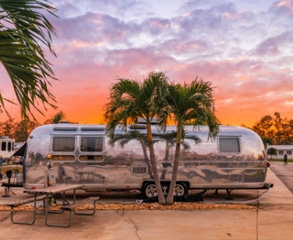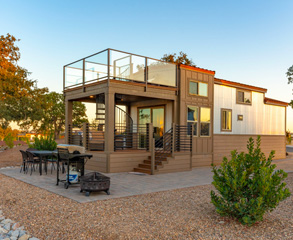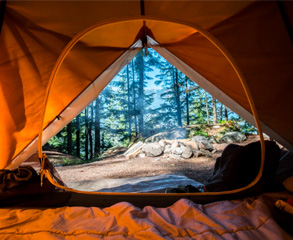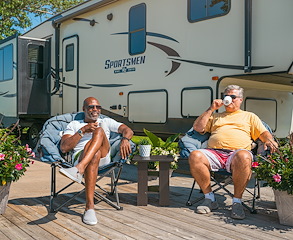2026 March Events in Florida
Safe RV Driving In Winter
Top Attractions Along the Oregon Coast
Irresistible Hot Chocolate Recipes for Winter
2026 Best February Events in Florida
Where to Stay Near Winter Park: Lodging at Sun Outdoors Rocky Mountains
Holiday Break Activities to Keep Kids Busy
Creating Your Perfect Holiday Table
Holiday Baking Recipes for RVers
DIY Christmas Gifts & Crafts
Stories from the Sunny Side
Discover More Insights
- Popular tags
- tips
- camping-etiquette
- rv
- campsite
- campgrounds
- pet-friendly
- family-friendly
- rv resort
- travel
- camping
- vacation
- the-latest
- tips
- new-to-camping
- recipe
- soup
- fall
- winter
- camping-soup-recipe
- homemade-soup-for-camping
- easy-camping-meals
- checklist
- camping-gear
- tent
- cookware
- sleeping-bag
- backpack
- comfort
- campground
- vacation
- packing
- what-do-bring
- camping-gear-checklist
- camping-essentials
- camping-supplies-list
- tent-camping-essentials
- camping-cookware
- camping-packing-list
- beginner-camping-checklist
- how-to-hook-up-your-rv
- rv-hookup-tips
- rv-maintenance
- rv-set-up
- camping-setup
- camping-with-toddlers
- family-camping-tips
- preparation-for-camping
- leveling-rv
- stabilizing-rv
- rv-camping-tips
- level-rv
- how-to
- rv-tips
- maintenance
- air-conditioning
- check-up
- snowbird
- health
- healthy-meals
- nutrition
- packing-tips
- packing-list
- top-reason-to-take-your-family-camping; family-camping; things-to-do; sun-outdoors
- rv-rentals
- renting-rv
- frequently-asked-questions
- buying-an-rv
- hydration
- summer-camping
- stay-cool-while-camping
- camping-tips
- grilled-banana-boat-recipe
- campfire
- treat
- snack
- bananas
- dessert
- easy-recipe
- foodies
- food
- banana
- s'mores
- national-smore-day
- fall-camping-tips
- fall-camping-gear
- sun-outdoors
- fall-camping
- cool-weather-camping-gear
- campfire-cooking
- meals
- easy
- stuffed-peppers
- beef
- casserole
- rice
- florida
- golfing
- wedding
- honeymoon
- events
- groups
- ocala-orange-lake
- golf
- getaway
- wedding-venue
- weddings-in-florida
- outdoor-venue
- summer-vacation-season
- camping-adventures
- spring-and-summer-getaways
- resort-amenities
- cinco-day-may-recipes
- layer-dip-recipe
- taco-dip
- mental-health
- nature
- health-benefits-of-camping
- green-space
- blood-pressure
- positive-benefits-of-camping
- health-benefits
- greenness
- vanilla
- recipe
- pudding
- seafood
- restaurant
- key-largo
- conch-house
- snack-recipe
- grab-and-go-snacks
- easy-snacks
- star-gazing
- constellations
- night-sky
- astrology
- astronomy
- family-fun
- snowbird-travel-tips
- eco-friendly
- green
- rving
- maine
- new-england
- saco-old-orchard-beach-koa
- the-latest
- wagon-wheel-campground-and-rv-
- wild-acres-rv-resort-and-campg
- healthy-rv-eating; healthy-eating-tip; tips; sun-outdoors; rv-meals; healthy-rv-meals
- st-patricks-day-recipe
- shamrock-bites-recipe
- holiday-dessert
- baking
- kid-activity
- march
- holiday
- groups
- group-events
- host-your-event
- weddings
- family-reunion
- company-retreat
- scout-camping
- outdoor-wedding
- corporate-team-building
- group-accommodations
- activities
- summer
- kids
- things-to-do
- outdoors
- outdoor-activities-for-kids
- family-camping
- unplugging-kids
- winter-recipes
- slow-cooker-recipes; stew
- what-is-an-rv
- your-guide-to-different-types-of-rvs
- rv styles
- buy-or-rent-rv
- pickleball
- tennis
- activities
- outdoors-activities
- pickleball-tips
- how-to-play-pickleball
- history-of-pickleball
- park-and-play-discounts
- long-term-stays
- annual-stays
- seasonal-stays
- monthly stays
- container-gardening
- rv-garden
- gardening-tips
- gardening
- plants
- spring
- planting
- new-england
- fall-foliage
- best-rv-resorts-for-fall-foliage
- old-orchard-beach
- saco
- maine
- mystic
- connecticut
- massachusetts
- dennis-port
- peters-pond
- wild-acres
- scenic-drive
- fall-activities
- resorts
- best-fall-camping
- boston
- cape-cod
- massachusetts
- island
- monomoy-island
- vacation-rental
- cottage-rental
- pennsylvania
- amish-country
- pennsylvania-dutch
- sun-retreats-lancaster-county
- lancaster
- michigan
- ohio
- wine-tour
- wineries
- vineyards
- wine
- fall-foliage
- mid-atlantic-region
- rv-resorts
- new-york
- north-carolina
- new-jersey
- virginia
- fall-vacation-ideas
- autumn
- scenic-drives
- east-coast
- fall-colors
- autumn-leaves
- kayaking
- hiking-trails
- road-trips
- fall-hikes
- attractions
- ocean-city
- maryland
- globe-theater
- bark-beach
- horses-on-the-beach-history-trail
- main-street
- vacation-ideas
- fall-recipes
- campfire-cooking
- comfort-food
- salem
- witch-trials
- history
- halloween
- museums
- campers-haven-rv-resort
- peters-pond-rv-resort
- sandwich
- camping
- marco-naples-rv-resort
- sherkston-shores-rv-resort
- games
- outdoor-games
- petanque
- rocky-mountains
- pacific-coast
- utah
- california
- washington
- oregon
- family-dinner
- harvest-season
- harvest-season-fall-recipes
- how-to-winterize-your-home
- vacation-home
- winterizing-your-vacation-home
- winterizing-your-home
- potluck-recipes
- choosing-an-rv
- motorhome-vs-towable-rv
- buying-tips
- south
- sun-outdoors-sarasota
- foodie-restaurants
- restaurants
- sarasota
- sarasota-dining
- sarasota-food-guide
- best-restaurants-in-sarasota
- camping-trip
- camping-activities
- outdoor-fun
- whale-watch
- rv-resort
- dewinterizing
- rv-system-check
- rv-water-system
- rv-cooking
- camping-meals
- recipes
- blazing-star-rv-resort
- fiesta-san-antonio
- southwest
- texas
- sun-retreats
- travelers-world-rv-resort
- fiesta
- parade
- festival
- event
- campfires
- kindling
- diy-kindling
- campfire-tips
- campfire
- cooking
- cooking-equipment
- cooking-outdoors
- buy-a-vacation-home
- low-maintenance
- no-reservations
- outdoor-lifestyle
- airbnb
- rent-vs-buy-vacation-home
- margarita
- mint-julep
- mojito
- summer-cocktails
- drink-recipes
- gift-ideas
- mothers-day
- mothers-day-gift-guide
- camping-breakfasts
- fort-mackinac
- grand-hotel
- mackinac-bridge
- mackinac-island
- mackinac-island-state-park
- midwest
- petoskey-bay-harbor
- jellystone-petoskey
- sun-retreats-homosassa-river
- sun-retreats-crystal-river
- red-oaks-sun-rv-communities
- crystal-river-florida
- bay-scallop-season
- florida-scallop-season
- gulf-coast-resorts
- fishing-in-ontario
- ontario-canada
- best-fishing-locations-ontario-canada
- where-to-fish-in-ontario
- jellystone-park-at-birchwood-a
- jellystone-water-parks
- mid-atlantic
- water-park
- yogi-bears-water-zone
- best-beaches-ontario-canada
- ontario-beach-resorts
- best-beaches-in-ontario
- beach-packing-list
- family-friendly-beaches
- beach-activities
- ontario
- canada
- sherkston-shores
- tips-for-bug-free-rv
- pest-control
- campfire-songs
- sing-along
- best-campfire-songs
- sing-along-songs
- campfire-classics
- recipes
- campfire-cooking-tips
- bbq-tips
- camping-recipes
- sun-outdoors
- dog-beaches
- sun-retreats-sherkston-shores
- shipwreck-playground
- water-park-activities
- ontaro-summer-getaway
- ontario-canada
- water-parks-in-ontario
- summer-fun
- family-attractions
- military-camping-discount
- sun-military-discount
- sun-news
- savings
- offer
- canadian-armed-forces
- united-states
- save-on-camping
- resort-discount
- campground-offer
- veteran-savings
- veterans-day
- military-offer
- armed-services-discount
- best-rv-parks
- readers-digest
- camping-with-pets
- rving-with-dogs
- tips-for-rving-with-dog
- amusement-parks
- lancaster-county
- pennsylvania
- hersheypark
- dutch-wonderland
- dorney-park
- dutch-country
- energy-balls
- energy-bites
- no-bake
- healthy
- camping-snacks
- nut-free
- mobile-apps
- ios
- android
- campfire-recipes
- canada
- hiking
- biking
- trails
- niagara-falls
- niagara-falls-breweries
- sherkston-shores-beach-resort-
- the-true-north
- fall-camping-activities
- things-to-do-fall-camping
- campfire-cooking-with-kids
- cooking-with-kids
- fall-activities
- midwest-travel
- autumn-road-trips
- outdoor-adventure
- family-travel
- nature-getaways
- chocolate-caramel-smore
- elvis-smore
- gourmet-smores-recipes
- grasshopper-smore
- lemon-meringue-pie-smore
- peanut-butter-smore
- smores
- samoa-smore
- rent-rv
- rv-rentals
- rv-lifestyle
- renting-an-rv
- traveling-with-a-group
- camping-experience
- save-money-on-rv-rentals
- back-to-school-tips
- back-to-school-tips-for-parents
- camping-hacks
- niagara-falls-wineries
- wine-tastings
- vineyard
- niagara-wineries
- wine-country
- winery-tours
- how-to-pack-a-cooler
- how-to-pack-your-cooler
- packing-a-cooler
- steps-on-how-to-pack-your-cool
- babyproofing
- babyproof-your-rv
- babyproofing-tips
- how-to-babyproof-your-rv
- pumpkin-patches
- harvest-festivals
- scenic-trails
- rv-checklist
- rv-checklist-for-snowbirds
- snowbirds
- retirement
- senior-living
- florida
- rv-packing-list-for-snowbirds
- rv-snowbird-preparation
- snowbird-rv-travel-tips
- snowbird-rv-living
- winter-rv-packing-list
- snowbird-rv-checklist
- rv-jargon
- rv-slang-terms
- 49er-village-rv-resort
- cava-robles-rv-resort
- indian-wells-rv-resort
- vines-rv-resort
- west
- wine-country-rv-resort
- fall-activites
- big-bear-lake
- sugar-pine-point-state-park
- easy-halloween-recipes
- spooky-halloween-treats
- halloween-party-food
- coffee
- coffee-drinks
- types-of-coffee-drinks
- amazing-corn-mazes
- corn-maze
- regions
- wisconsin
- fall-festival
- farm
- fall-farm
- costume
- charlevoix-apple-fest
- midwest-fall-foliage
- petoskey
- charlevoix-apple-fest-2025
- michigan-apple-festivals
- fall-foliage-in-michigan
- things-to-do-in-charlevoix-in-fall
- petoskey-fall-getaways
- midwest-fall-festivals
- michigan-apple-picking
- jellystone
- halloween
- halloween-rv-decorating
- halloween-rv-decorations
- halloween-rv-site
- halloween-decorating-ideas
- rv-halloween-decorations
- spooky-rv-decor
- great-smokey-mountains-national-park
- south-carolina
- richmond
- rv-winter-storage
- rv-winter-storage-hacks
- halloween-safety-tips
- trick-or-treating
- guide-to-winterizing-your-rv
- how-to-winterize-your-rv
- winterize-your-rv
- winterizing-your-rv
- safe-rv-driving-tips
- winter-rv-driving-tips
- holiday-rv-driving-tips
- rv-driving-tips
- caramel-corn
- gingerbread-cookies
- holiday-sweets
- hot-chocolate
- peppermint-bark
- holiday-sweet-treats; holiday-sweets; holiday-treats
- christmas-sweets; christmas-treats
- christmas-dessert-recipes
- easy-holiday-baking
- dairy-free-recipe
- how-to-cook-a-turkey
- how-to-cook-a-turkey-in-your-r
- rv-cooking
- thanksgiving
- thanksgiving-turkey
- golf-cart-safety
- holidays
- cookies
- holiday-recipes
- christmas
- bike-trails
- bbq
- barbeque
- best-bbq-in-texas
- texas-bbq-joints
- park-model
- snowbird-planning-tips
- retirement-living
- new-years-resolution-ideas
- new-year's
- new-year's-resolutions
- rv-winter-driving-kit
- tips; how-to-create-rv-winter-driving-kit
- sun-outdoors-paso-robles
- exercise
- fitness
- sun-outdoors-coos-bay
- stay-fit-at-sun-outdoors; sun-outdoors
- fitness-centers
- exercise-classes
- excercise-while-traveling
- groundhog-day
- february
- candlemas
- texas
- road-trip
- dallas-fort-worth
- san-antonio
- cooking
- healthy-recipes
- black-bean-soup
- healthy-rv-recipes
- easy-rv-meals
- whole-wheat-pancakes
- hummus0and-avocado-wrap
- destinations
- great-lakes
- staycation
- football
- game-day-snacks
- bbq-meatballs
- french-onion-dip
- game-day-recipes
- super-bowl-snacks
- buffalo-wings
- apps
- appetizers
- best-places-to-retire
- naples
- how-to-plan-a-camping-trip
- vacation-planning. resorts
- saint-patricks-day
- st-patricks-day
- irish-holiday
- ireland
- four-leaf-clover
- luck-of-the-irish
- colorado
- granby-colorado
- river-run-rv-resort
- signature-sun-rv-resort
- rocky-mountains
- adirondack-gateway-rv-resort
- resort-features
- adirondack-mountains
- rv-camping
- what-to-pack
- camping-prep
- sun-news
- sun-unity
- earth-day
- celebrate-earth-day
- april-22
- sustainability
- environmental-impact
- community-clean-up
- jellystone-park-larkspur
- jellystone-park-luray
- jellystone-park-gardiner
- jellystone-park-williamsport
- jellystone-park-quarryville
- jellystone-park-western-new
- jellystone-park-birchwood
- yogi-bear
- jellystone-park
- canadian-border
- us-canada-border
- travel-tip
- border-crossing
- united-states-to-canada
- easter
- easter-recipes
- spring-recipes
- sweet-treats
- side-dishes
- frontier-town-rv-resort
- vacation-rentals
- theme-park
- campfire-recipes
- dutch-oven-apple-cobbler
- chicken-alfredo
- memorial-day
- memorial-day-recipes
- grilling
- summer-cookout
- grilled-chicken
- sunburn-relief
- sunburn
- sunburn-remedies
- natural-solutions
- how-to-heal-sunburn
- fathers-day
- fathers-day-gift-ideas
- gifts-for-the-camping-dad
- how-to-pack-an-rv
- how-to-pack-your-rv
- list-of-things-to-pack-in-your
- packing-an-rv
- cookout
- national-parks
- canada-day
- fort-tatham-rv-resort-and-campground
- great-smoky-mountains-national-park
- nantahala
- 4th-of-july
- fourth-of-july
- independence-day
- sunfest
- 2026-events
- music
- craft-fair
- blueberry-picking
- season
- region
- cottages
- vacation-homes
- buy-a-vacation-house
- niagara
- farms
- creamsicle
- resorts
- sun-outdoors-pigeon-force
- tennessee
- smoky-mountains
- camground-amenities
- rving-with-pets
- tips-for-rving-with-pets
- traveling-with-pets
- campfire-foil-packet-recipes
- campfire-foil-packets
- foil-packet-recipes
- foil-packets
- fall-crafts
- kids-crafts
- lobster
- arches-national-park
- moab
- beer
- breweries
- colorado
- hidden-ridge-rv-resort
- indian-creek-rv-camping-resort
- petoskey-rv-resort
- camping-costumes
- halloween-costumes
- halloween-camping-costumes
- arizona
- sun-retreats-ocala-orange-lake
- northwest
- palm-creek-resort-and-residences
- golfing-getaway
- golf-resorts
- fall-camping
- apples
- apple-recipes
- fishing
- chesapeake-bay
- holiday-recipes
- treetops
- rv-community
- dallas-cowboys
- at&t-stadium
- crystal-river
- gulf-coast
- jellystone-park-at-birchwood-a
- sleepy-hollow-ny
- california
- winter-getaway
- hiking
- walking
- park
- how-to-cook-a-thanksgiving-turkey
- unique-turkey-recipes
- christmas
- orlando-florida
- palm-springs-california
- san-antonio-texas
- spring-break
- orlando-attractions
- san-antonio-activities
- palm-springs-resorts
- sweets
- valentines-day
- february-fourteenth
- valentine
- heart
- love
- paso-robles
- rv-decorating-ideas
- holidays
- holiday decor
- christmas decor
- holiday-sweets
- holiday-baking
- desserts
- destinations
- leaf-verde-rv-resort
- lost-dutchman-mh-and-rv-resort
- palm-creek-golf-and-rv-resort
- sticking-to-your-new-years-resolution
- new-years-tips
- snacks
- game-day
- jacksonville
- pecan-park
- blue-star-rv-resort
- wildflowers
- lost-dutchman
- saguaro-national-park
- arboretum
- long-term-guests
- long-term-stay-program
- rv-longer
- rv-longer-program
- snowbirds
- travel-tips
- north
- working-from-home
- working-remotely
- remote-work
- work-from-home
- great-smoky-mountains-national
- sun-outdoors-sevierville-pigeo
- pigeon-forge
- board-games
- things-to-do
- classic-board-games
- new-board-games
- dice-games
- card-games
- interactive-online-games
- game-night-ideas
- easy-recipes
- chicken-tikka-masala
- burrito-bowls
- beef-and-broccoli
- rv-meals
- easter-crafts
- kids-activities
- spring-crafts
- craft-stick-carrots
- marble-easter-eggs
- bunny-baskets
- mason-jar-crafts
- festive-decorations
- spring-cleaning
- diy-spring-cleaning-ideas
- clean-home
- yard-prep
- garden-planning
- window-cleaning
- decluttering
- rv-organization
- gardening
- rving-with-pets
- smoothies
- amish-country
- lake-in-wood-rv-resort
- resort
- fitness
- health
- family-vacation
- vacation-planning
- trip-planning
- austin-lone-star-rv-resort
- blazing-star-rv-resort
- hill-country-cottage-and-rv-re
- la-hacienda-rv-resort
- texas-hill-country
- lake-travis
- day-trip
- door-county
- fond-du-lac-east-kettle-moraine
- philadelphia-day-trips
- home-decor
- home-decorating
- coffee
- niagara-region
- infographic
- vegan-recipes
- hershey
- things-to-do-near-hershey
- fort-tatham-rv-resort-and-camp
- jellystone-park-of-western-new
- oceanside-rv-resort-campground
- the-sands-rv-and-golf-resort
- waterfalls
- sun-outdoors-pigeon-forge
- rv-maintenance
- family-vacation
- beach
- safari
- at-home-activities
- infographic
- travel-with-kids
- breweries
- beer
- spirits
- hiking-etiquette
- trail-etiquette
- water-parks
- sun-outdoors-resorts
- myrtle-beach
- sherkston-ontario
- new-oleans
- frontier-town
- sherkston-shores-beach-resort
- big-timber-lake-rv-and-camping
- cape-may
- jersey-shore
- long-beach-rv-resort
- alabama
- gulf-shores
- pandion-ridge-rv-resort
- shopping
- outlet-mall
- orange-beach
- sun-outdoors-lancaster-county
- pennsylvania-foods
- philly-cheesesteaks
- primanti-bros
- herrs
- tastykake
- sheetz
- hidn-pines-rv-resort
- wagon-wheel-rv-resort-campgrou
- wild-acres-rv-resort-and-campground
- biking
- bike-safety
- illinois
- petoskey-koa
- silver-creek-rv-resort
- indiana
- lake-rudolph
- louisiana
- miniature-golf
- mini-golf
- kayaking
- kayaking-tips
- kayaking-safety
- kayak
- kayaking-for-beginners
- burger-recipes
- labor-day
- oregon-coast
- sun-outdoors-myrtle-beach
- sun-outdoors-rocky-mountains
- canyonlands-national-park
- horseback-riding
- adirondack-gateway
- geneva-on-the-lake
- apple-picking
- apple-picking-near-me
- best-apple-orchards
- apple-picking-season
- autumn-travel
- family-fall-trips
- orchards-in-michigan
- new-england-apple-picking
- amish
- gettysburg
- doylestown
- philadelphia
- king-of-prussia
- hurricane-preparedness
- hurricane-preparedness-checklist
- hurricane-emergency-kit
- hurricane-season-safety
- hiking-tips
- beginnner-hiking
- trail-mix
- fall-color
- fall-foilage
- campground
- staycation ideas
- moab-valley
- salt-lake-city
- canyonlands-gateway
- arches-gateway
- garden-city
- sun-retreats-old-orchard-beach
- maine-campground
- saco-old-orchard-beach
- family-friendly-halloween-movies
- spooky-season
- halloween-classics
- chili
- pumpkin-seeds
- sweet
- savory
- veterans-day
- specials
- tent-camping
- full-hookup
- halloween-menu
- easy-halloween-recipes
- spooky-snacks
- halloween-buddies
- witch-finger-breadsticks
- hot-dog-mummies
- ghost-cookies
- halloween-appetizers
- halloween-desserts
- full-time-rv
- remote-job
- florida-vacation-homes
- home-sales
- second-home
- stuffing-recipes
- thanksgiving-stuffing
- best-thanksgiving-sides
- holiday-table
- decorating-tips
- festive-table-decor
- holiday-centerpiece
- mood-lighting
- napkin-folding
- table-settings
- holiday-decorations
- crafts
- diy
- gift-ideas
- diy-christmas-gifts
- christmas-gifts-for-crafty-campers
- homemade-holiday-crafts
- budget-friendly-holiday-gifts
- vitamins
- healthy-foods
- immunity-with-whole-foods
- eat-healthy
- club-naples-rv-resort
- dunedin-rv-resort
- hidden-river-rv-resort
- kissimmee-south-mh-rv-resort
- lake-san-marino-rv-resort
- mill-creek-rv-resort
- naples-rv-resort
- palm-creek-resort-residences
- rainbow-village-of-largo
- reunion-lake-rv-resort
- spanish-main-mh-and-rv-resort
- hot-chocolate
- hot-cocoa-recipes
- hot-chocolate-recipes
- cold-weather-treats
- stocking-stuffers
- snow-activities
- exercise
- home-fitness
- equipment
- snowbird-planning-tips
- types-of-snowbirds
- detox
- hydration
- arches-national-park
- stargazing
- sun-outdoors-arches-gateway
- sun-outdoors-canyonlands-gateway
- sun-outdoors-moab-downtown
- sun-outdoors-north-moab
- dark-sky
- dark-skies
- dark-sky-parks; star-gazing
- grow-your-own-vegetables
- indoor-gardens
- savory-pies
- taco-pie
- chicken-pot-pie
- read
- books
- austin-lone-star-rv-resort
- sandy-lake-rv-resort
- treetops-rv-resort
- lone-star-state
- maple-syrup
- winter-park
- skiing
- snowshoeing
- snow
- snowsports
- snowshoe
- snowboard
- sledding
- tubing
- ski-resort
- ski-lodge
- granby-ranch
- ski-and-stay
- ski-discount
- denver
- ski-trip
- winter-escapes
- extended-stay
- lodging
- snowbird
- zephyrhills
- rv-living
- bluebonnet
- strawberries
- mid-atlantic
- shenandoah
- shenandoah-national-park
- fort-myers
- groves-rv-resort
- indian-creek-rv-resort-and-mh-
- siesta-bay-rv-resort
- woodsmoke-camping-resort
- fort-myers-beach
- tampa
- clearwater
- dunedin
- spring-camping-essentials
- spring-camping-tips
- spring-camping
- buckeye
- zoo
- st-patrick's-day-recipes
- irish-food
- traditional-irish-dishes
- el-capitan-canyon
- ocean-mesa-rv-resort
- santa-barbara
- glamping
- delaware
- leisure-point-resort
- rehoboth-beach
- sea-air-village
- packages
- rv-life
- full-time-rv
- deliveries
- amazon
- mail-forwarding
- nomadic-rv-lifestyle
- daytona-beach
- florida-keys
- florida-road-trip
- florida-vacation
- lakeland
- orlando
- the-keys
- jacksonville-zoo
- walt-disney-world
- bear-lake
- blue-water-beach-resort
- alabama
- mobile-alabama
- country-squire-mh-and-rv-resor
- daytona-beach-rv-resort
- grand-lake-rv-golf-resort
- homosassa-river-rv-resort
- manatees
- orange-city-rv-resort
- rock-crusher-canyon-rv-resort
- national-park-week
- national-park-foundation
- sun-outdoors-partnership
- visit-national-parks
- virtual-tours
- aerial-adventure-park
- high ropes
- zipline
- zip-line-courses
- aerial-adventure
- obstacle-course
- moab
- rafting
- national parks
- gwynns-island
- jellystone-park-at-natural-bridge
- new-point
- sand-dunes
- dunes
- lake-michigan
- sun-retreats-birch-bay
- west-coast-the-rockies
- cape-cod
- cape-cod-rv-resort
- senior living
- 55+-senior-living
- casa-grande-retirement-community
- active-adult-resort
- sun-outdoors; things-to-do
- mothers-day-activities
- camping-ideas-mothers-day
- outdoor-brunch-ideas
- strawberry-picking
- tips-on-strawberry-picking
- cape-may
- cape-may-naval-attractions
- sun-outdoors-cape-may
- naval-attractions
- military
- armed-forces
- attractions
- naval-history
- golf-courses-in-gulf-shores
- gulf-shores-golf
- golfing-in-alabama
- 18-hole
- gulf-state-park
- fruit-slush
- lake-erie
- maine-attractions
- arcadia-national-park
- camping; rv; decor
- rotisserie-chicken
- fathers-day
- gift-cards
- corn
- corn-on-the-cob
- summer-side-dish
- how-to-cook-corn-on-the-cob
- grilled-corn
- big-timber-lake-rv-and-camping
- seashore-campsites-and-rv-reso
- avalon
- whale-watching
- seashore
- ocean-city-gateway
- fort-whaley
- rv-camping-in-ocean-city
- ocean-city-attractions
- juneteenth
- outdoor-afro
- boston
- campers-haven
- marthas-vineyard
- house-rentals
- hammock. national-hammock-day
- buying-a-hammock
- charter-fishing
- fishing-in-alabama
- atlantic-city
- shady-pines
- wildwood
- long-beach-island
- 4th-of-july-campsite-decorations
- 4th-of-july-campsite-decor; 4th-of-july-decor
- 4th-of-july-decorations
- rv-essentials-checklist
- rv-emergency-kit
- first-aid
- tents
- buy-a-tent
- types-of-tents
- tent-buying-guide
- how-to-buy-a-tent
- outdoor-adventures
- beginner-camping
- amusement-parks
- hot-dogs
- regional-food
- national-hot-dog-day
- detroit
- seattle
- kansas-city
- chicago
- cincinnati
- dc
- atlanta
- daquiris
- alcoholic
- cocktails
- road-trip
- pelican-rv-resort-and-marina
- marathon
- sun-retreats-san-antonio-west
- rv-park
- roller-coasters
- accessible
- wheelchair
- petoskey-michigan
- shopping
- area-attractions
- checklist
- tent-camping-checklist
- campsite-kitchen
- tourist-attractions
- rv
- types-of-rvs
- recreational-vehicle
- buying-rv
- nantahala
- blue-ridge-mountains
- rock-river
- coast
- san-diego
- chula-vista
- venice-beach
- san-luis-obispo
- big-sur
- orange-beach
- swimming
- fishing
- angler
- lake-okeechobee
- best-fishing-spots
- fall-fishing-spots
- anglers
- new-jersey
- cape-may-wildwood
- best-golf-courses-in-cape-may
- cape-may-golfing
- weekend-getaway-tips
- statue-of-liberty
- disneyland
- dollywood
- waco
- new-ywork-city
- labor-day-activities
- game-day-recipes
- football-snacks
- fajitas
- vegetarian
- iowa
- kentucky
- gas
- save-money
- delaware
- ferry
- hiking-trails
- california-hiking
- halloween-camping
- fall-camping-events
- family-halloween-getaways
- spooky-weekend-activities
- halloween-at-sun-outdoors
- halloween-events-for-kids
- trick-or-treat-camping
- fall-family-travel-ideas
- outdoor-halloween-activities
- costume-parade-ideas
- off-season
- upstate-new-york
- buffalo
- rochester
- albany
- letchworth-state-park
- day-trips
- atlantic-city
- travel
- cape-island-resort
- cape-way-wildwood
- barefoot-country-music-fest
- resort-amenities
- miniature-golf-courses
- courses
- mini-bowling-alley
- pickleball
- water-parks
- vacation-amenities
- arizona
- sherkston
- new-orleans
- rocky mountains
- halloween; pumpkin-carving-tips; jack-o-lantern
- halloween-decorations
- seaport
- hartford
- mohegan-sun
- vacation-rentals
- lancaster-country
- garden-city-utah
- hotel
- motel
- rustic-camping
- lake-rudolph
- santa-claus
- holiday-world
- family-campground-in-santa-claus-indiana
- seasonal-camping-getaways
- lake-rudolph-campground
- things-to-do-near-holiday-world
- seasonal-events
- fall-fun
- winter-fun
- santa-claus-land-of-lights
- festivals
- daytona
- grand-canyon
- fireworks
- july-4th
- fourth-of-july-fireworks
- north-america
- independence-day-celebrations
- fireworks-events
- 4th-of-july-festivities
- drive-in-theaters
- movies
- aquariums
- lighthouses
- sunset
- best-sunsets
- birds
- birding-hotspots
- roller-coaster
- rv-living
- extended-stays
- full-time-living-in-florida
- florida-site-lock-program
- tax-benefits
- colorado; activities; skiing; camping; outdoor-adventure
- things-to-do-in-colorado
- arapahoe-basin
- mesa-verde-national-park
- no-membership-fees
- rving-save-gas
- save-gas-money
- uv-damage
- rv-uv-protection
- rv-cover
- ultraviolet protection
- memorial-day-activities
- memorial-day-weekend
- resort amenities
- resort activities
- ways-to-get-around-a-campground
- golf-cart
- bike
- bicycle
- golf-carts
- scooter
- scooters
- electric-bike
- e-bike
- michigan-rv-resorts
- lake michigan
- ludington
- silver-lake
- grand-rapids
- metro-detroit
- americas-third-coast
- third-coast
- firework-alternatives
- 4th-of-july
- patriotic crafts
- bear-lake
- sun-outdoors-garden-city
- sun-outdoors-salt-lake-city
- summer-hydration
- hydrating-fruits-and-vegetables
- natural-summer-hydration
- high-water-content-foods
- new-jersey-road-trip
- how-to-prevent-bug-bites-while-camping
- bug-bite-prevention
- treating-bug-bites
- bug-stings
- mosquitos
- ticks
- labor-day-weekend-meal-ideas
- labor-day-weekend
- labor-less-meal-prep
- fall-crafts
- natural-fall-crafts
- fall-desserts
- pumpkin-spice
- pears
- fall-sweets
- voting
- election-day
- how-to-vote-while-on-vacation
- absentee-voting
- thanksgiving-side-dishes
- sauerkraut
- creamed-onions
- butter-beans
- wild-rice-casserole
- corn-spoon-bread
- frogs-eye-salad
- empanadas
- mushroom-gravy
- acorn-squash
- sun-outdoors-gift-card
- gift-card
- purchase-gift-cards
- the-dyrt-magazine-awards
- sun-outdoors-cape-charles
- sun-outdoors-lake-rudolph
- 2022-best-places-to-camp
- wine-tasting-regions
- california-wine-country-oregon-wine-country-midwest-wine-region
- new-york-wine-trail
- ontario-canada-wine-region
- canada-niagara-wine-region
- county
- paso-robles-wine-region
- napa-valley
- california-wine
- midwest-wineries
- oregon-wine-country
- myrtle-beach-fall
- february-events-festivals-florida
- 2026
- state-fair
- spring-training
- daytona-500
- mlb-spring-training
- upstate-new york
- boating
- lake-ontario
- thousand-0islands
- 1000 islands
- historic-island-lodging
- vacation rentals
- myrtle-beach
- vacation rentals
- rv-sites
- family-friendly-amenities
- carolina-country-music-festival
- accommodations
- active-55-resort
- rv-resort-in-chiefland-florida
- florida-rv
- chiefland-rv-park
- southern-leisure-rv-resort
- florida-manatee-springs
- cedar-key-day-trip
- active-adult-rv-community
- florida-rv-vacations
- vacation-home-sales
- wild-acres-rv-resort-and-camping
- aquaboggan-water-park
- funtown-splashtown-usa
- portland
- carolina-pines
- holiday-events
- christmas-activities
- safety-tips
- first-aid
- safety
- camping-safety-tips
- camping-checklist
- rv-camping-safety
- first-aid-kit-for-camping
- bear-safety
- mosquito-repellent
- camping-preparation
- hiking-safety
- fort-myers
- southwest-florida
- retirement-home
- homes-for-sale
- buy-a-home
- resort-living
- ft-myers
- camping
- cottage
- sun-rv-resorts
- reflections-on-silver-lake
- avon-park
- 55+
- manufactured-homes-florida
- 55+-community-florida
- central-florida-55+-community
- rv-resort-florida
- lakefront-rv-resort
- senior-living-florida
- retirement-communities-florida
- carol-lynn-resorts-east
- atlantic-ocean
- new-jersey-rv-resorts
- cape-may-rv-resort
- seasonal-rv-resort-new-jersey
- jersey-shore-rv-camping
- park-model-homes-new-jersey
- sun-outdoors-new-jersey
- rv-resorts-near-philadelphia
- new-jersey-beach-resorts
- February 2026 (2)
- January 2026 (4)
- December 2025 (7)
- November 2025 (8)
- October 2025 (13)
- September 2025 (11)
- August 2025 (8)
- July 2025 (4)
- June 2025 (4)
- May 2025 (5)
- April 2025 (6)
- March 2025 (4)
- October 2024 (6)
- September 2024 (5)
- August 2024 (2)
- June 2024 (3)
- May 2024 (5)
- April 2024 (1)
- March 2024 (4)
- February 2024 (1)
- January 2024 (1)
- December 2023 (1)
- November 2023 (1)
- October 2023 (2)
- September 2023 (1)
- August 2023 (2)
- July 2023 (1)
- June 2023 (3)
- April 2023 (3)
- March 2023 (2)
- January 2023 (1)
- December 2022 (3)
- November 2022 (4)
- October 2022 (2)
- September 2022 (3)
- August 2022 (1)
- July 2022 (4)
- June 2022 (3)
- May 2022 (2)
- April 2022 (1)
- March 2022 (2)
- February 2022 (1)
- November 2021 (1)
- October 2021 (1)
- September 2021 (9)
- August 2021 (8)
- July 2021 (10)
- June 2021 (10)
- May 2021 (8)
- April 2021 (6)
- March 2021 (9)
- February 2021 (5)
- January 2021 (6)
- December 2020 (5)
- November 2020 (4)
- October 2020 (8)
- September 2020 (7)
- August 2020 (4)
- July 2020 (11)
- June 2020 (9)
- May 2020 (6)
- April 2020 (7)
- March 2020 (5)
- February 2020 (2)
- January 2020 (3)
- November 2019 (1)
- October 2019 (6)
- September 2019 (5)
- August 2019 (4)
- July 2019 (4)
- June 2019 (9)
- May 2019 (1)
- April 2019 (3)
- March 2019 (3)
- February 2019 (4)
- January 2019 (2)
- December 2018 (3)
- November 2018 (3)
- October 2018 (5)
- September 2018 (3)
- August 2018 (8)
- July 2018 (8)
- June 2018 (5)
- May 2018 (4)
- April 2018 (1)
- March 2018 (5)
- January 2018 (1)
- December 2017 (1)
- October 2017 (3)
- September 2017 (2)
- August 2017 (2)
- June 2017 (1)
- May 2017 (1)
recent searches
search inspiration
- Search for pet-friendly lakefront RV sites in Michigan under $75 per night.
- List campgrounds in Colorado with full hookups and easy hiking access.
- Find cabins in California national parks available this weekend.
Yes. All-age manufactured home communities offer friendly neighborhoods and amenities for families, such as basketball and pickleball courts, playgrounds, community centers, outdoor pools, and dog parks.
Title goes here lorem ipsum
Lorem ipsum a eu dignissim nunc nascetur sed nibh imperdiet porttitor imperdiet duis viverra pharetra...
Title goes here lorem ipsum
Lorem ipsum a eu dignissim nunc nascetur sed nibh imperdiet porttitor imperdiet duis viverra pharetra...
Title goes here lorem ipsum
Lorem ipsum a eu dignissim nunc nascetur sed nibh imperdiet porttitor imperdiet duis viverra pharetra...
- Search for pet-friendly lakefront RV sites in Michigan under $75 per night.
- List campgrounds in Colorado with full hookups and easy hiking access.
- Find cabins in California national parks available this weekend.
Leaving Site
You are about to enter our customer portal. The portal allows current long-term (seasonal or annual) guests to check balances, make payments, and much more.
If you are not a current long-term guest, please close this window to book an online reservation or a long-term stay.









